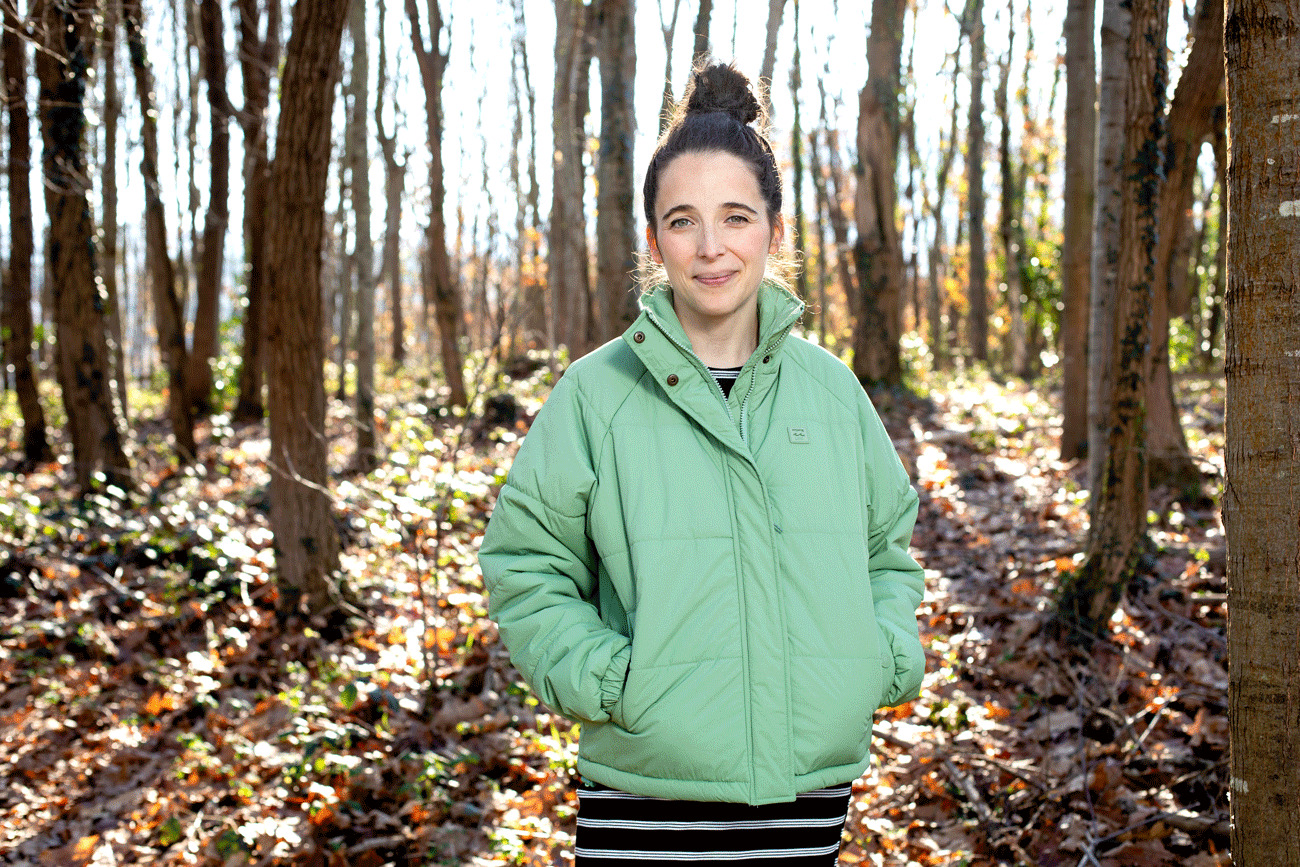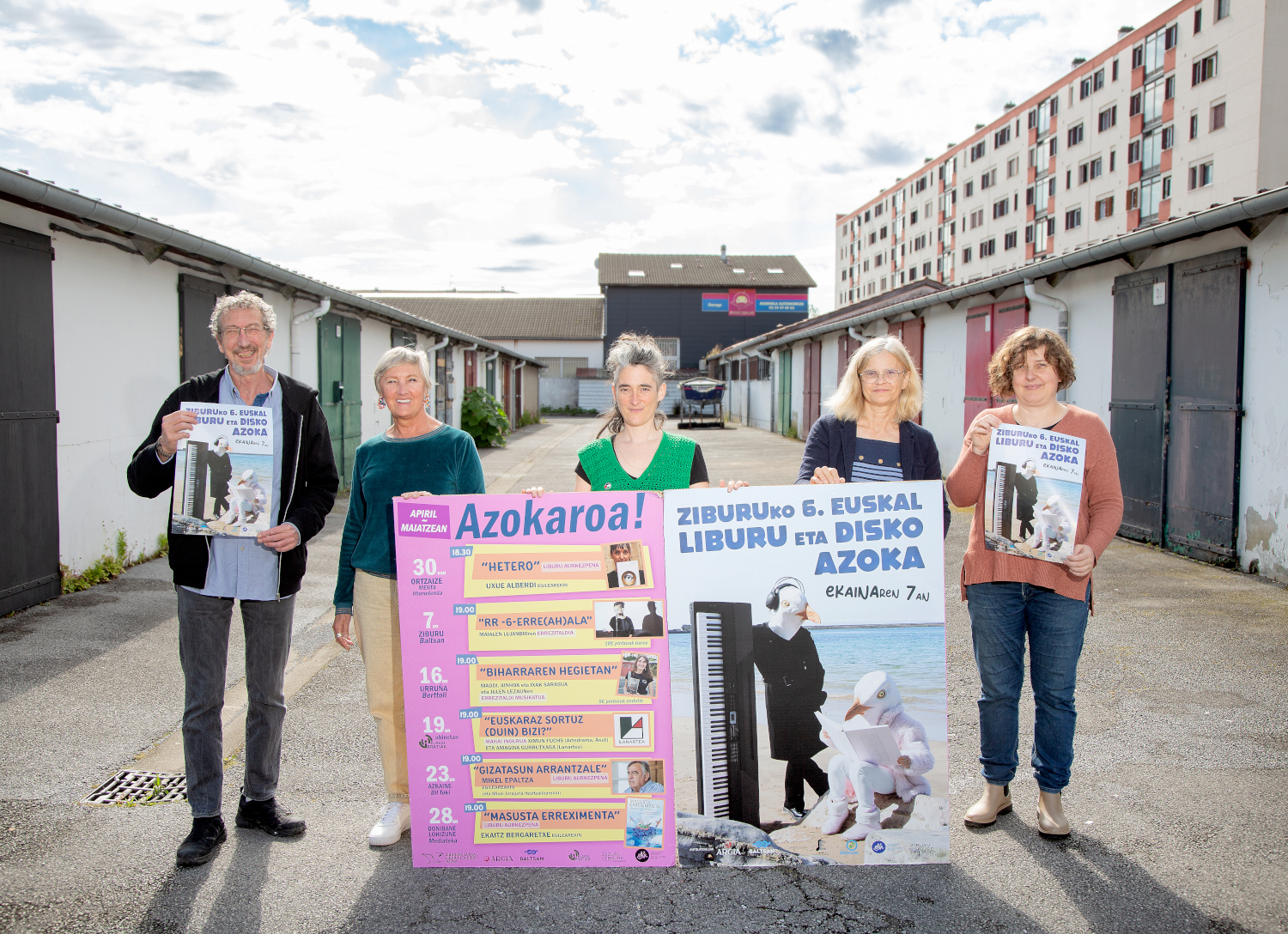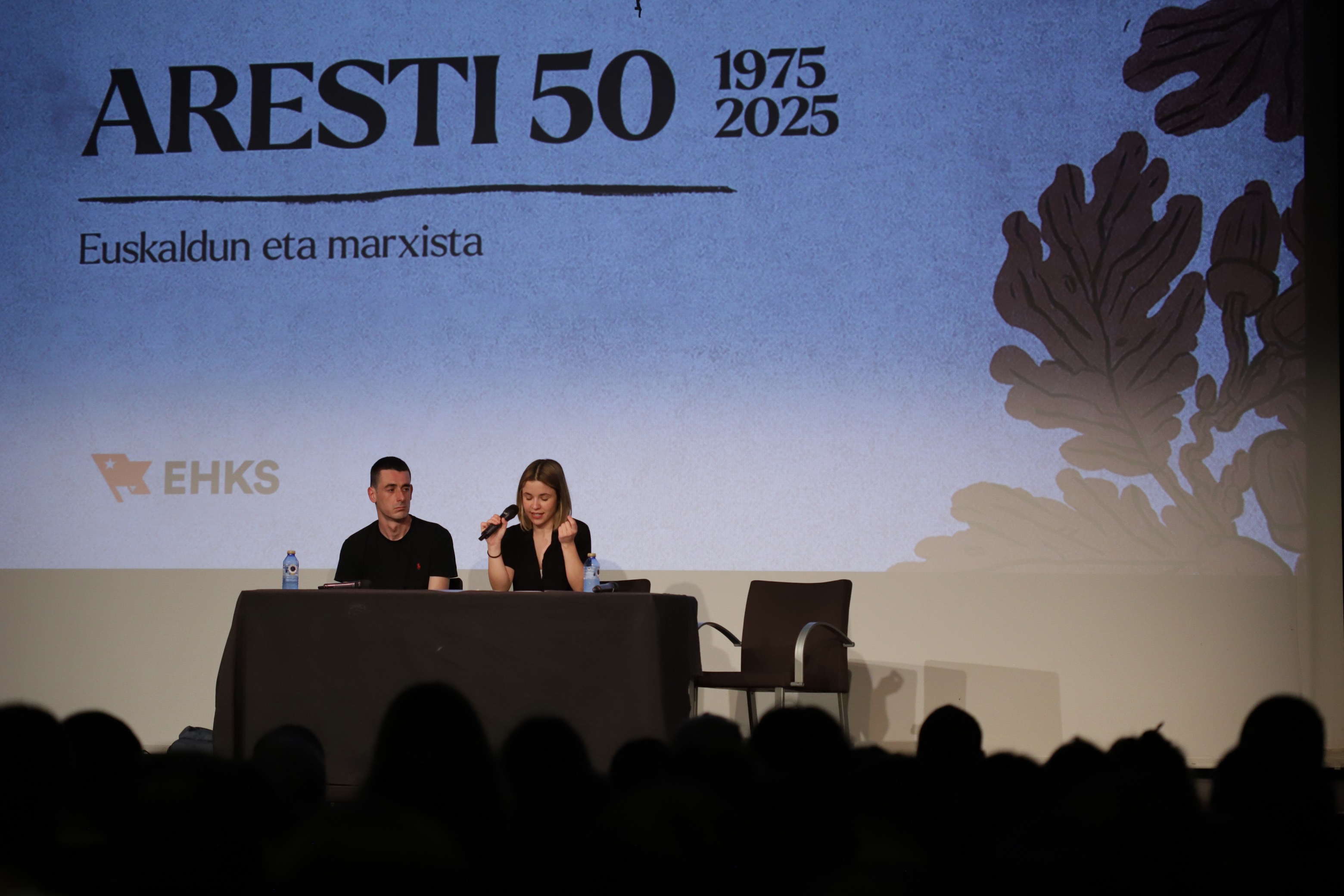Literature isn't dangerous at all, right?
- The Azpiarra reading group has organized a poetry festival at the Gaztetxe in Vitoria-Gasteiz. In the workshops, talks, recitals and exhibitions, the topics discussed in the sessions held during the course have been exposed. “For a literature that hits the time” have wagered: “Art has been a meeting point to place ourselves in our time and reflect on what we want literature to be.”

It's Thursday, June 6. At 11:30 a.m. in the gaztetxe there are still no people going to be in the afternoon, because it is a working day, but they have started to approach gradually and about twenty people have gathered at the door. Poetry is a hammer under the big banner written in capital letters. Many familiar faces, people who have been known in the course sessions of the Azpiarra readers' group.
Translation and oral literature The morning session was prepared by two members of the
Irakurle taldea group, dedicated to translation. They put on the desk that translation is not just a technical issue. It has a lot to do with creation and decision, and they have focused on the following questions: What kind of literature does it translate? Which authors? Translation also serves the development of the language and has a literary function in itself. Like literature, it cannot be understood simply because social and political issues cross it. There has been talk of the work of transferring or bringing images and references to another culture, of the particular problems of minority languages, and of the process of understanding and translating the intentionality of the text.
After the gaztetxe was reopened in the afternoon, Aratz Fernandez de Pinedo, member of Underscorako, intervened to present the group of readers and the festival: “Because we didn’t have time to read, we created the group to unite and encourage ourselves, and to reflect on the literature that interests us, to understand and transform the world. We have also organized this festival for it.” The oral
tradition literature has also taken place. Storytellers Onintze Goitiz tell two stories about freedom, property and lust that the Phantom of the New World has called. The story of a ruin by Julen Ormaetxea is closer to the theater or the monologue.
The group of readers has also been a space to reflect on literature and politics, but also on the literature, politics and
social and political commitment of the writer, from the moment of its creation, both the festival and the group of readers Azpiarra. It is not surprising, therefore, that a round table of size has been organised at the same festival. It is clear that the issue has aroused interest, as more than a hundred people have come to listen, from various generations. Led by Eli Irazu, the writers Martin Bidaur, Uxue Apaolaza and Joseba Sarrionandia sit on the gaztetxe tabside with a lot of people watching.
Irazu gives them an anecdote to start with: “Two members of the group of readers were putting the posters of this festival at the university and they came safely to them. Seeing what the poster was, surprised, he said to them: “Ah, literature, but this is nothing bad, no?” (Ah, literature, but that is nothing bad, right? ).
According to Martin Bidaur, if the revolutionary things that are written are harmless, it's because they don't have any movement behind the muscle. “With what a person writes in his room he can change something, but he has great limitations.” He has highlighted the ability of literature to “explore, explore feelings, explore ideas”. This complexity gives it the potential to generate new ideas and influence people.
Apaolaza adds that the literature opens up the possibility of existence: “I don’t think it has to be to reflect or to feel identified, although lately it’s heard a lot, but to show that the world is more complex than you’re told.”
Is literature communication and translation ultimately? Joseba Sarrionandia has worked hard on it. Two dislikes, two political objectives had the Basque writers of their generation: to help create the standard Basque language and literary language, and to bring the Basque literature in Spanish to the Basque. Today, however, the socio-linguistic situation and reality are different: as in the final stages with oppressed languages and cultures, there are no longer monolingual speakers and the Basque language does not have a normal space, for example.
For Sarrionandia, the task now is to give variety to the literary language, to set more records, closer to the orality: "Today, one of the reasons why young people and adolescents do not identify with the language can be to see the language itself, the Basque language, the form."
On the ecosystem of Basque literature, very small and precarious, Bidaurre has pointed out that a “network of editorials, prizes and fairs with an approximate stability” has been achieved. It does not believe that the markets for hegemonic languages should be taken as a reference for a healthy system. “There is an idea that salvation, from literature, from Euskera, will come through the path of commodification. I believe that the history of Euskal Herria, the Basque literature and the Euskaldunization of recent years shows us that it has advanced because there has been a militant will; a politicized and committed will with the Basque, literature and politics in general”.
It is also seen in the translations. For Apaolaza, Basque writers tend to write thinking about translation, which “kills literature”. “If I write to a supposed universal audience, I don’t write to anyone,” he adds. Sarrionandia believes that the autonomy of the Basque literature needs to be strengthened, so that it is not valued solely on the basis of what returns to the Spanish literary system.
The living conditions and the pace imposed on workers by capitalism have ended up talking about the strong influence it has on literary development, especially the importance of time. In the words of Apaolaza: “We have been robbed of thought, time and capacity for complex ideas. We have to demand a decent time.”
Warm night, cheerful atmosphere Music
again and gaztetxe is a bit quieter. People have prepared themselves to read poetry in micro-open. Maddi Sarasua, who has just published in the spells of Biharra (May, 2024), has been one of them.
Around 22.00, the Hurra Group has offered a performance that has darkened the day. Guitar, keyboard and flute travesera have sung songs of revolutionary tradition. Listeners have sung, danced, applauded and screamed.
The day ends with Dervish's electronic music at the Gaztetxe bar, and in the summer night atmosphere people who still don't want to go home dancing and chatting.
What resaca, what ideas will leave in the air the next day, the one created at the Gaztetxe de Vitoria? Is literature empty? Is art out of social organization? Do they just drive the rules of aesthetics? Or can it be dangerous? Give the function we want? Perhaps the next time the security forces of the Campus ban the posters of the literary festival. They should be placed when the guard is not looking. Maybe it's a good sign that literature is a hammer.
Now that everyone has become more Franciscan than the Pope, it’s worth remembering our unsurpassed classics. There was one in the 17th century, his grace was Arnaut Oienart. And since we can’t immerse ourselves in all his works, today we will praise O.ten youth in... [+]
Aurreko tertuliako galderari erantzuteko beste modu bat izan zitekeen, akaso modu inplizituago batean, bigarren solasaldi honetako izenburua. Figura literarioaz gaindi, pertsonaia zalantzan jartzeko, edo, kontrara, pertsonaiaren testuingurua ulertzeko saiakera bat. Santi... [+]
Astelehen honetan hasita, astebetez, Jon Miranderen obra izango dute aztergai: besteren artean, Mirande nor zen argitzeaz eta errepasatzeaz gain, bere figurarekin zer egin hausnartuko dute, polemikoak baitira bere hainbat adierazpen eta testu.
Martxoaren 17an hasi eta hila bukatu bitartean, Literatura Plazara jaialdia egingo da Oiartzunen. Hirugarren urtez antolatu du egitasmoa 1545 argitaletxeak, bigarrenez bi asteko formatuan. "Literaturak plaza hartzea nahi dugu, partekatzen dugun zaletasuna ageri-agerian... [+]
1984an ‘Bizitza Nola Badoan’ lehen poema liburua (Maiatz) argitaratu zuenetik hainbat poema-liburu, narrazio eta eleberri argitaratu ditu Itxaro Borda idazleak. 2024an argitaratu zuen azken lana, ‘Itzalen tektonika’ (SUSA), eta egunero zutabea idazten du... [+]

























